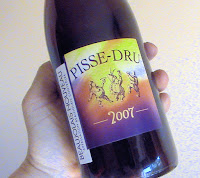Why Testing is a Good Idea, but so is also Throwing Away the Results
Last week's Business Week included an article by Steve McKee warning that pretesting advertising campaigns can kill good ideas. ("Beware the Advertising Pretest" at http://www.businessweek.com/smallbiz/content/dec2007/sb2007127_693450.htm?campaign_id=rss_daily ). Many successful campaigns, argues McKee, would never have passed traditional pre-testing with focus groups. The reasons are not hard to find, but the most important is the disconnect between the real-life reaction of consumers and what they say when you ask for an opinion. Predictably when you ask someone to look at an ad and comment they feel obliged to find some flaw; they feel that to say honestly that it looks ok is somehow not enough to pay for the free food and other considerations they were given. And in any case most people simply don't have the knowledge or the experience to provide meaningful comments. You get the same problem when you test new brand names on non-professional audiences. Many now va...



